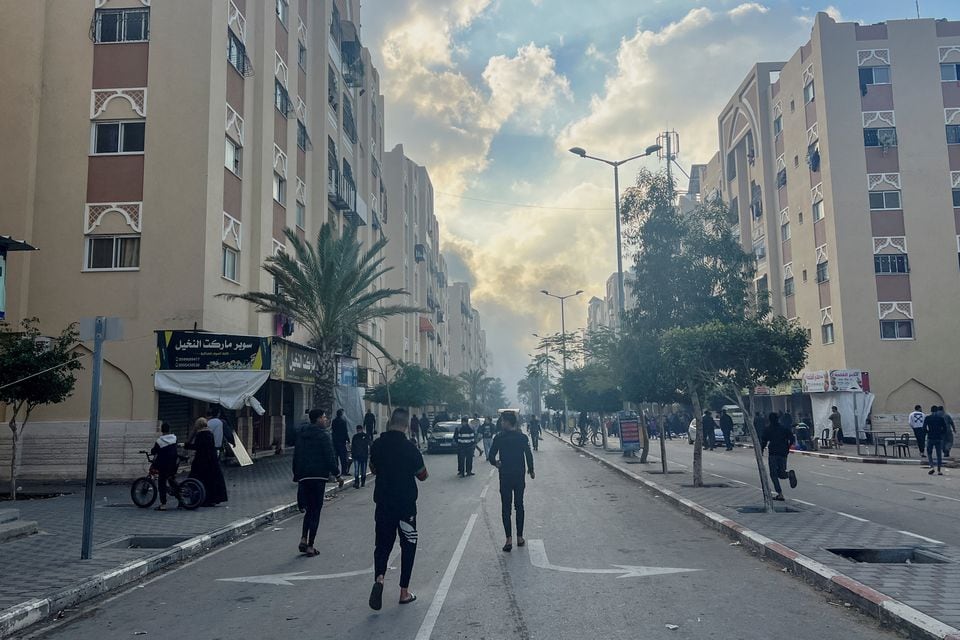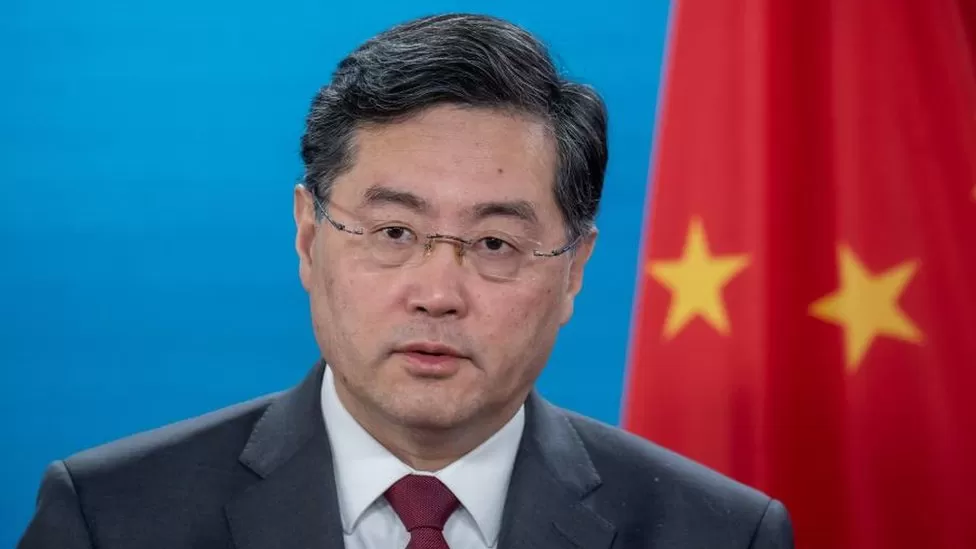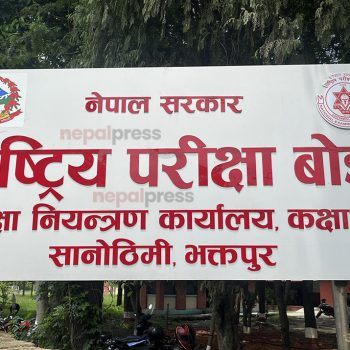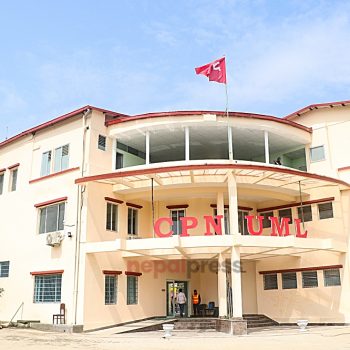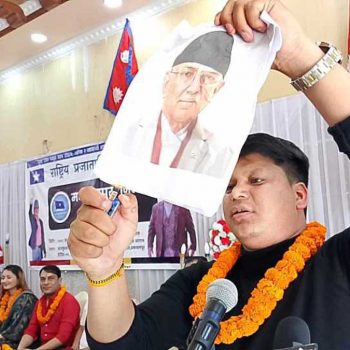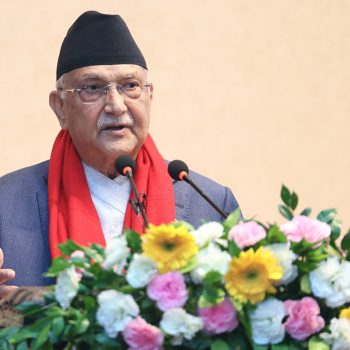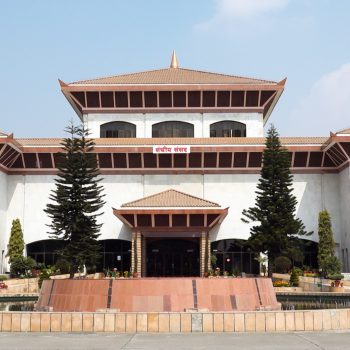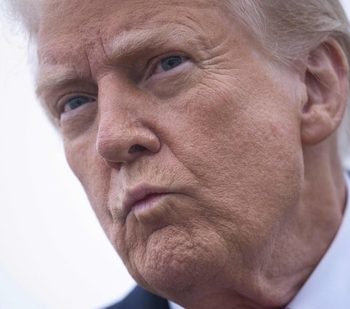Peace talks more ‘realistic’, says Ukraine president; Biden to visit NATO
 NepalPress
NepalPress
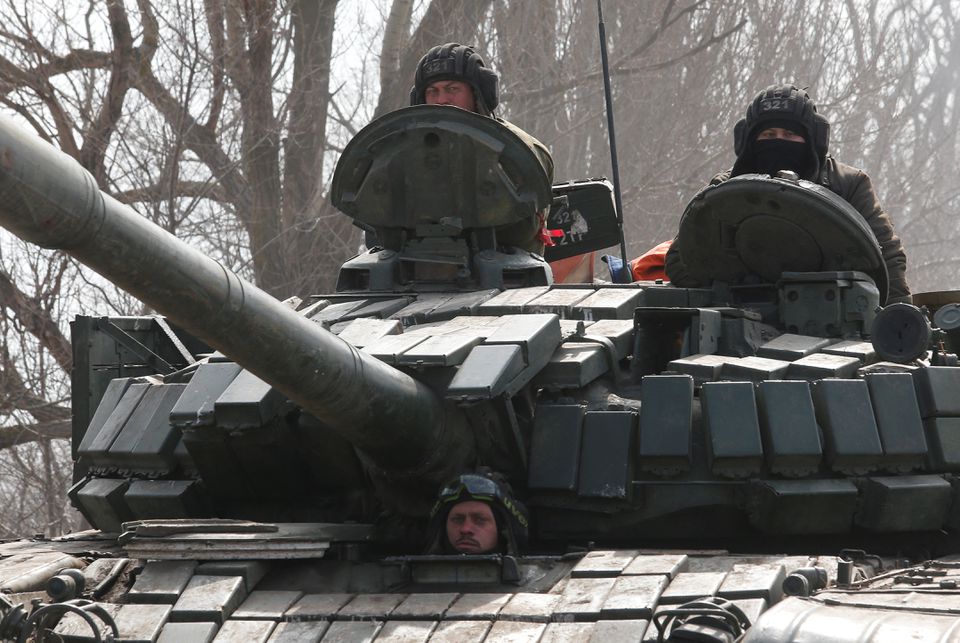
Ukrainian President Volodymyr Zelenskiy said on Wednesday peace talks were sounding more realistic but more time was needed, as Russian air strikes killed five people in the capital Kyiv and the refugee tally from Moscow’s invasion reached 3 million, Reuters reported.
Moscow has not captured any of Ukraine’s 10 biggest cities following its incursion that began on Feb. 24, the largest assault on a European state since 1945.
Ukrainian officials have raised hopes the war could end sooner than expected, possibly by May, saying Moscow may be coming to terms with its failure to impose a new government by force and running out of fresh troops.
“The meetings continue, and, I am informed, the positions during the negotiations already sound more realistic. But time is still needed for the decisions to be in the interests of Ukraine,” Zelenskiy said in a video address on Wednesday, ahead of the next round of talks.
In a hint of a possible compromise, Zelenskiy said earlier Ukraine was prepared to accept security guarantees from the West that stop short of its long-term goal of joining NATO. Moscow sees any future Ukraine membership of the Western alliance as a threat and has demanded guarantees it will never join.
Kremlin spokesperson Dmitry Peskov said it was too early to predict progress in the talks. “The work is difficult, and in the current situation the very fact that (the talks) are continuing is probably positive.”
Russia calls its actions a “special military operation” to demilitarise and “denazify” Ukraine. Ukraine and Western allies call this a baseless pretext for a war of choice that has raised fears of wider conflict in Europe.
U.S. President Joe Biden will make his first visit to Europe since Russia invaded Ukraine to discuss the crisis with NATO allies next week, the White House said.
Biden will attend a NATO leaders meeting at the military alliance’s headquarters in Brussels on March 24.
Biden is expected to announce an additional $800 million in security assistance to Ukraine on Wednesday, a White House official said.
KYIV BOMBED, 5 KILLED
Just over 3 million have now fled Ukraine, according to the United Nations, with over 1.8 million arriving in neighbouring Poland. Its prime minister and those of Slovenia and the Czech Republic were in Kyiv on Tuesday to show solidarity.
In Kyiv, around half of the 3.4 million residents have fled and some spend nights sheltering in metro stations.
Local authorities said Tuesday’s bombardments on Kyiv killed at least five people as buildings were set ablaze and people were buried under rubble. Russia denies targeting civilians.
About 2,000 cars left the besieged southern port city of Mariupol, location of the worst humanitarian crisis, the local council said.
But a convoy with supplies for Mariupol, where residents have been sheltering from repeated Russian bombardments and are desperate for food and water, was stuck at nearby Berdyansk, Deputy Prime Minister Iryna Vereshchuk said.
More than 100 buses carrying a few thousand civilians left the besieged northeastern city of Sumy in a “safe passage” operation, the International Committee of the Red Cross said on Tuesday. They were heading towards Lubny in central Ukraine after Russians gave a green light for the evacuation.
Russia said it now controlled the Kherson region in southern Ukraine. Reuters could not independently verify the report.
Fox News said a second journalist working for the cable network was killed in Ukraine in the same incident in which a Fox cameraman died when their vehicle was struck on Monday by incoming fire.
ECONOMIC FALLOUT
The conflict has brought economic isolation upon Russia and the economic cost was fully exposed on Wednesday as its sanctions-ravaged government teetered on the brink of its first international debt default since the Bolshevik revolution.
Moscow was due to pay $117 million in interest on two dollar-denominated sovereign bonds it had sold back in 2013, but it faces limits on making payments and has talked of paying in roubles, which would trigger a default.
The crisis is also being felt in the form of spiralling energy costs in many Western countries with some heavily reliant on exports from Russia and after a U.S. ban on imports of oil from the country.
British Prime Minister Boris Johnson visits the Middle East on Wednesday to meet Crown Prince Mohammed bin Zayed in the United Arab Emirates before seeing Crown Prince Mohammed bin Salman in Saudi Arabia in efforts to secure more oil flows.
“We will work with them to ensure regional security, support the humanitarian relief effort and stabilise global energy markets for the longer term,” said Johnson.
The United States, the European Union and Britain announced further sanctions on Tuesday, while Moscow retaliated by putting Biden and other U.S. officials on a “stop list” that bars them from entering Russia.
The latest EU sanctions include bans on energy sector investments, luxury goods exports to Moscow, and imports of steel products from Russia.
They also freeze the assets of more business leaders believed to support the Russian state, including Chelsea football club owner Roman Abramovich.




